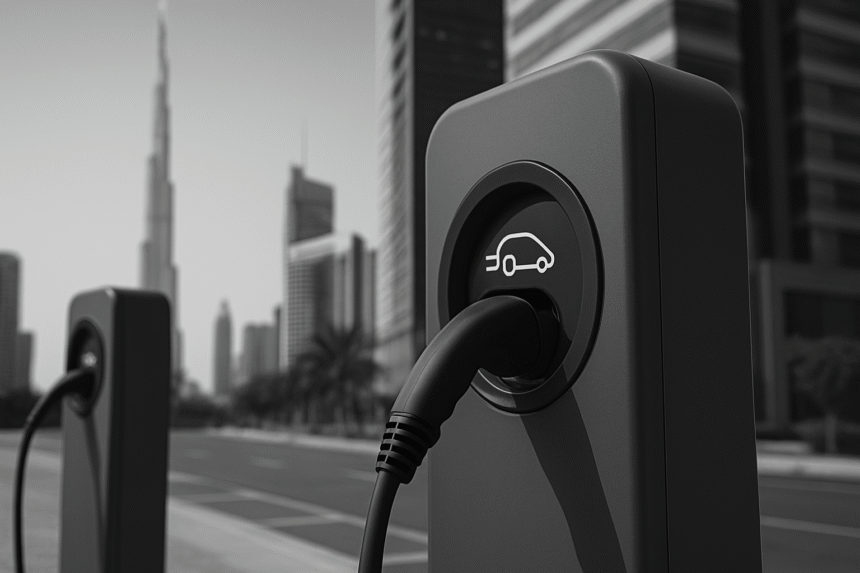Top EV Charger Suppliers in the UAE for Public Sector Projects
As the UAE accelerates its EV goals, public-sector infrastructure is playing a crucial role. From Dubai to Abu Dhabi, government entities are issuing tenders for EV charging stations across municipalities, residential developments, and public parking zones. Choosing the right EV charger suppliers in the UAE is now a strategic decision—not just a technical one.
In this article, we break down what decision-makers in the public and semi-government sectors need to know. Whether you’re evaluating vendors or preparing for a DEWA-regulated project, this guide offers practical insight.
Understanding DEWA Regulations for EV Charging Projects
Before selecting a supplier, public sector entities must align with DEWA’s EV Green Charger Initiative. Here’s what that means:
- Installation approval is mandatory before connecting to the grid.
- Only DEWA-certified chargers can be installed.
- Public stations must follow specific network and safety standards.
- The charger must support Shabik or approved CPO platforms.
A good supplier will already have experience with these checkpoints and handle the compliance process on your behalf.
Public Tender Checklist: What to Include
Public EV charger tenders should be more than a hardware list. Include:
- Scope of Work: Site visit, supply, installation, commissioning, and integration.
- Software Compatibility: Chargers must support backend monitoring via an open protocol (e.g., OCPP).
- Warranty & SLA: At least 2 years manufacturer warranty, plus local maintenance.
- Training & Handover: Must include on-site training and technical documentation.
- DEWA Approvals: Supplier to obtain No Objection Certificate (NOC) and energization clearance.
This ensures you don’t end up with a charger that’s physically installed but unusable due to regulatory delays.
Comparing EV Charger Suppliers in the UAE
Let’s explore some of the top EV charger suppliers in the UAE for public projects:
1. ABB
- Strengths: Global brand, high-capacity chargers (DC), known for quality.
- Public Projects: Widely used in transport authority installations.
- Challenges: After-sales service may depend on third-party agents.
2. CATEC Mobility
- Strengths: UAE-based, specializes in public-sector EV infrastructure.
- DEWA Experience: Works closely with DEWA and supports full compliance.
- After-Sales: Offers local maintenance, call center, and spare parts availability.
- Differentiator: Provides charger + software + support under one agreement.
3. Siemens
- Strengths: Established electrical infrastructure partner in the UAE.
- Project Fit: Better suited for large utility-scale integrations.
- Consideration: May be more expensive for basic 22kW AC needs.
4. EVBox (via distributors)
- Strengths: Sleek design, customizable interfaces.
- Issues: Support challenges have emerged recently as the brand restructures.
When comparing suppliers, weigh not only price, but total ownership cost including service continuity, response time, and integration with DEWA and CPO platforms.
Warranty Terms: What Public Buyers Should Demand
A charger is only as reliable as the support behind it. Here are key warranty terms to insist on:
- Manufacturer Warranty: Covers the charger hardware (usually 2 years, extendable).
- Installation Warranty: Covers workmanship, typically 6 months to 1 year.
- Service Level Agreement (SLA): Response time for support calls, replacement parts, or remote diagnosis.
- Exclusions: Cables, vandalism, and misuse often excluded. Clarify upfront.
For public projects, local support and fast replacement commitments can reduce operational downtime.
Final Thoughts: Strategic Supplier Selection
Public EV charging infrastructure in the UAE is no longer in pilot mode—it’s scaling. Choosing the right EV charger supplier means finding a partner who understands:
- UAE regulations and DEWA protocols
- Local logistics and site-specific constraints
- Total lifecycle support
When in doubt, choose vendors with proven public sector experience, a track record of NOC approvals, and the ability to support software integration and reporting.
As tenders grow more competitive, the most successful suppliers will be those who combine technical capability with regulatory fluency and service delivery.



Leave a Reply